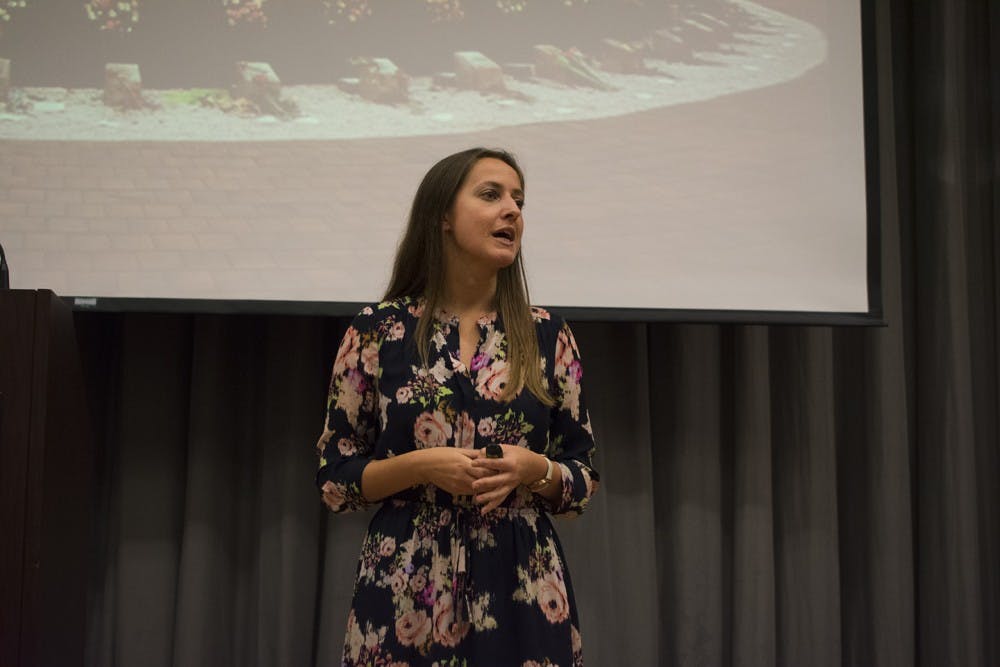April 16, 2007 was a cold, snowy day on the Virginia Tech campus in Blacksburg, Virginia, and Kristina Anderson was running late. She walked into Norris Hall to the second floor, found her classroom, located an empty seat and sat in the back-right corner of her intermediate French class. She was one of the last to walk into the building before the doors to every exit were chained shut by a shooter.
Then the first gun shots went off. Anderson’s professor went outside to see what the noise was and quickly came back into the classroom telling the students to call 911. Before they could barricade the door, the shooter walked in and opened fire on the students, shooting them one by one.
“It felt very sequential. It felt very intentional. It felt very planned, very evil,” Anderson said.
The shooting lasted about 10 to 12 minutes before law enforcement broke into the building and the shooter committed suicide.
Anderson was shot three times and was one of the most critically injured survivors of the shooting. Eleven of her classmates and her professor were killed that day, along with 20 more people on the campus.
After the shooting, Anderson founded the Koshka Foundation, a non-profit organization created to work with schools to prevent events like the Virginia Tech School shooting from happening again. She serves as the executive director and travels giving presentations to improve safety on school campuses.
Anderson emphasizes looking for the signs of possible violence in other individuals, reaching out to the police department with any suspicious observations, always knowing where the exits are and having a plan for any disaster that could happen in any given place.
“Your personal safety is your own responsibility," Anderson said. "There’s an element of self-efficacy and self-resilience that you have to educate yourself to know your local law enforcement, to reach out and ask questions, to report things that might seem out of place and to always remember that there can be bad people in the world that mean to do us harm."
Mark Schreiber, the president and principal consultant of Certified Protection Professional and a representative of the American Society for Industrial Security, an organization focused on security management, found the program to be very beneficial for students and staff in learning about campus safety.
“It's giving them the knowledge on how to address and support this because it’s one thing to rely on campus police to be able address the threat, but it’s much more valuable if all the students and everyone who uses the campus is aware what to do when they recognize a threat,” Schreiber said.
Major of Operations T.J. Geary at USCPD has been looking for a way to bring Anderson to campus and worked with the Russell House, the Leadership and Service Center and ASIS to make her presentation happen in the Russell House Ballroom on Thursday night.
“Hearing it from somebody who has actually been through that … offers a whole different perspective and I think that the impact you get from hearing her message from her maybe resonates a little differently than when you’re hearing it from the police department,” Geary said.
Anderson’s presentation was a part of the Momentum: Conversations for a Better World series.

